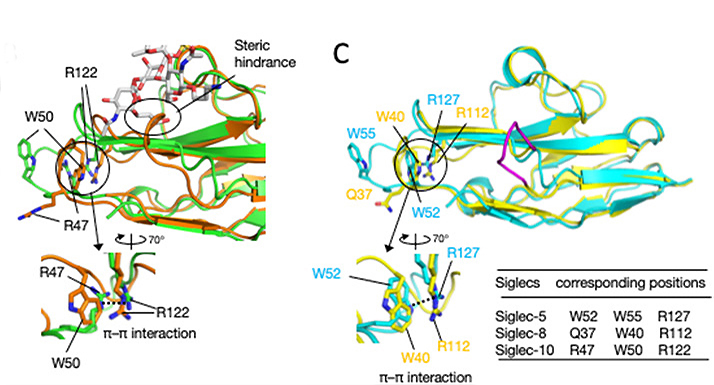
 中央研究院 生物化學研究所
中央研究院 生物化學研究所
Guillain-Barré syndrome (GBS), including its variant Miller Fisher syndrome (MFS), is an acute peripheral neuropathy that involves autoimmune mechanisms leading to the production of autoantibodies to gangliosides; sialic acid-containing glycosphingolipids. Although association with various genetic polymorphisms in the major histocompatibility complex (MHC) is shown in other autoimmune diseases, GBS is an exception, showing no such link. No significant association was found by genome wide association studies, suggesting that GBS is not associated with common variants. To address the involvement of rare variants in GBS, we analyzed Siglec-10, a sialic acid-recognizing inhibitory receptor expressed on B cells. Here we demonstrate that two rare variants encoding R47Q and A108V substitutions in the ligand-binding domain are significantly accumulated in patients with GBS. Because of strong linkage disequilibrium, there was no patient carrying only one of them. Recombinant Siglec-10 protein containing R47Q but not A108V shows impaired binding to gangliosides. Homology modeling revealed that the R47Q substitution causes marked alteration in the ligand-binding site. Thus, GBS is associated with a rare variant of the SIGLEC10 gene that impairs ligand binding of Siglec-10. Because Siglec-10 regulates antibody production to sialylated antigens, our finding suggests that Siglec-10 regulates development of GBS by suppressing antibody production to gangliosides, with defects in its function predisposing to disease.
